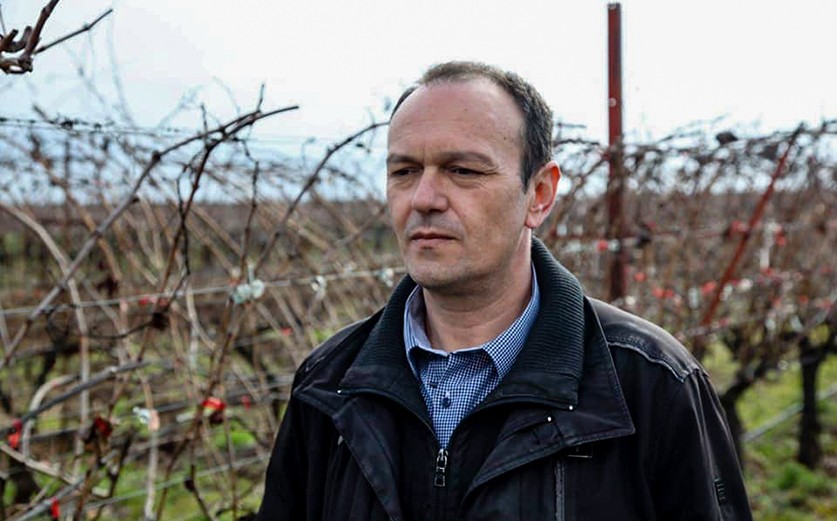Meet Ilias
Ilias Kalfas, 45, was born in Livadi, a village near Mount Olympus, and lives in Thessaloniki. He’s the project leader for the three-year “Small Farm Adoption” project at the American Farm School (AFS), a part of the “New Agriculture for a New Generation” (NANG) program. He studied agronomy at Aristotle University of Thessaloniki and received his PhD in entomology from the Imperial College London. He spent a year working at the National Agricultural Research Foundation (formerly NAGREF) of ELGO DIMITRA, and after returning from the UK, he ran his own certification company. He also has a MSc in Quality Assurance Systems and Production Management in Food Industry from the Alexander Technological Educational Institution of Thessaloniki. He has been working as a project leader in the Strategic Project Management Office at the American Farm School since 2015. “At first, I wanted to be an engineer,” Ilias said. “Now I feel very lucky to practice a profession that will always be relevant because no matter what, people continue to eat every day!”
Now in its second year, the “Small Farm Adoption” project brings experts from AFS to advise young farmers on their farms throughout the season. A rotating set of trainers trains the farmers about best practices in planting, weeding, fertilization, crop protection, harvest etc. “The training that each beneficiary receives is individualized and based on what is observed in his field,” Ilias said. “If a farmer has a problem with pests, for example, we send a PhD candidate who specializes in that pest or a very experienced field agronomist. It’s a countryside academy, a living lab.”
AFS had an open call in Thessaly and Macedonia to invite farmers to participate in the program. They sought practicing farmers who already had their own fields and equipment and then established groups in different areas to focus on the main crop of the area: stone fruits in Veria, mountain tea in Elatochori, lentils in Farsala, to name a few. The project also teaches farmers how to use smart technologies to improve their products and help them process and sell their products. "In the first year, we evaluated the parameters," said Ilias. "We learned a lot, met with the beneficiaries, diagnosed their needs, and set priorities. Now we are going faster. The beneficiaries really trust us. They come to us with their own ideas and feedback and want to have a more active interaction."
"This work is like taking a child by the hand, holding it for three years, providing it with skills and knowledge, and then letting it go,” Ilias said. “Our hope is that by the end of the program, they will be adults, standing on their own feet and doing real business.” Another goal of the project is to encourage the farmers in each group to collaborate with each other. Working together will help them make investments by building on existing national and European programs, sharing the cost of equipment and facilities, and attracting larger customers. "With the help of the project, many of the farmers have created relationships that will last for decades," said Ilias. "And the beneficiaries will continue to support their communities. Their success will have a positive impact on their communities, and we hope they will be a vehicle for transferring the experience of previous generations while sharing the knowledge they now have with future generations.”

